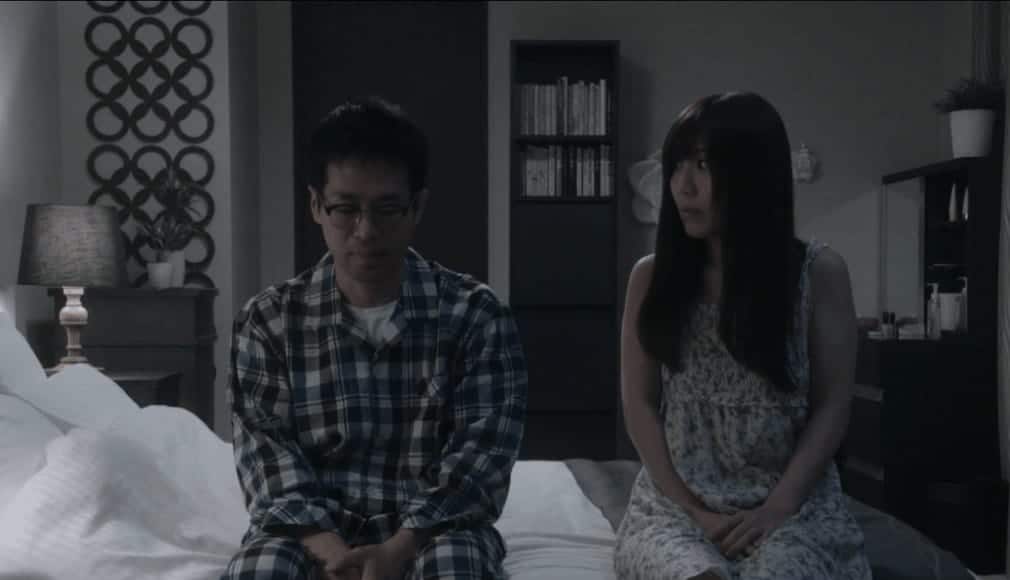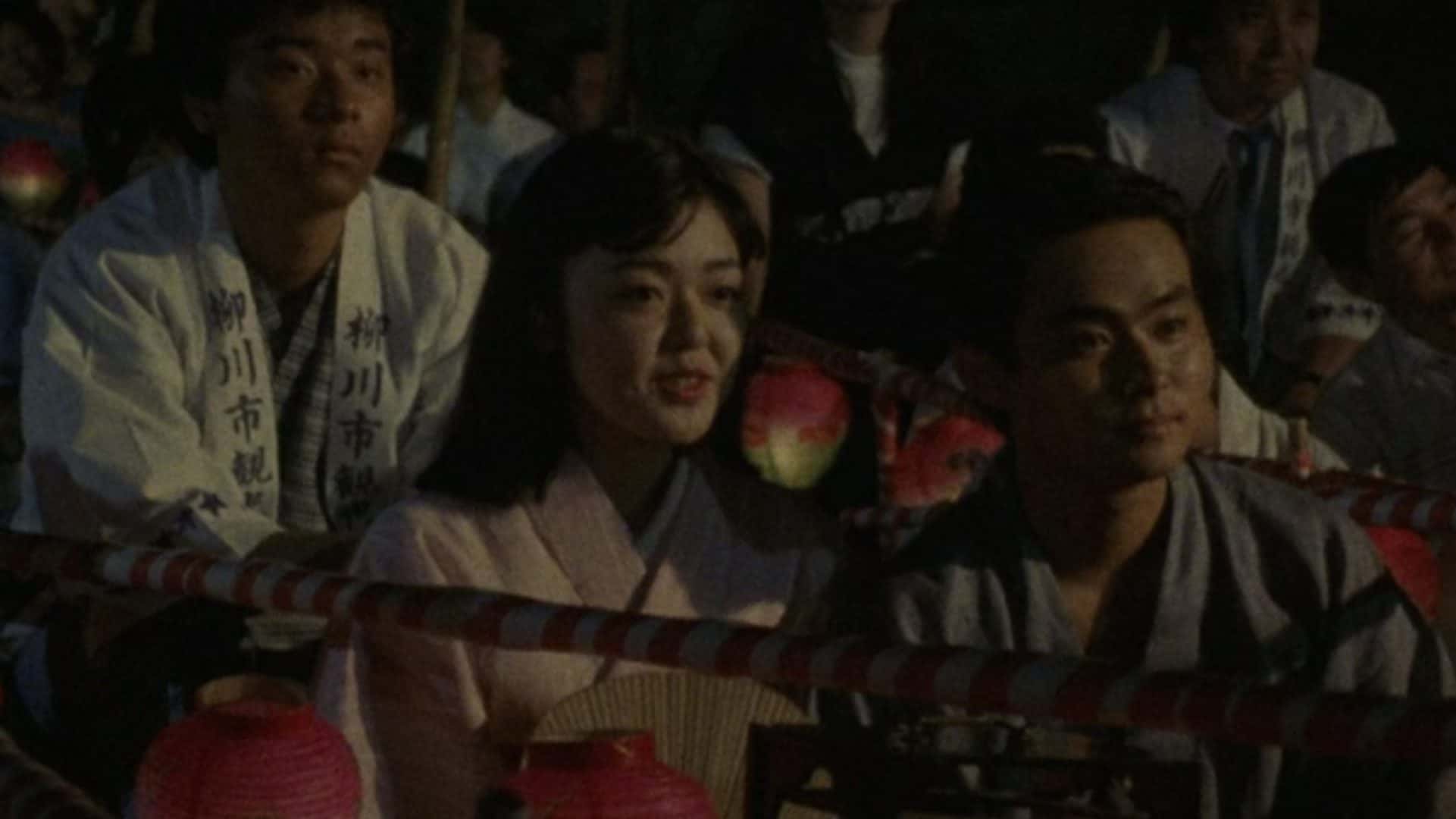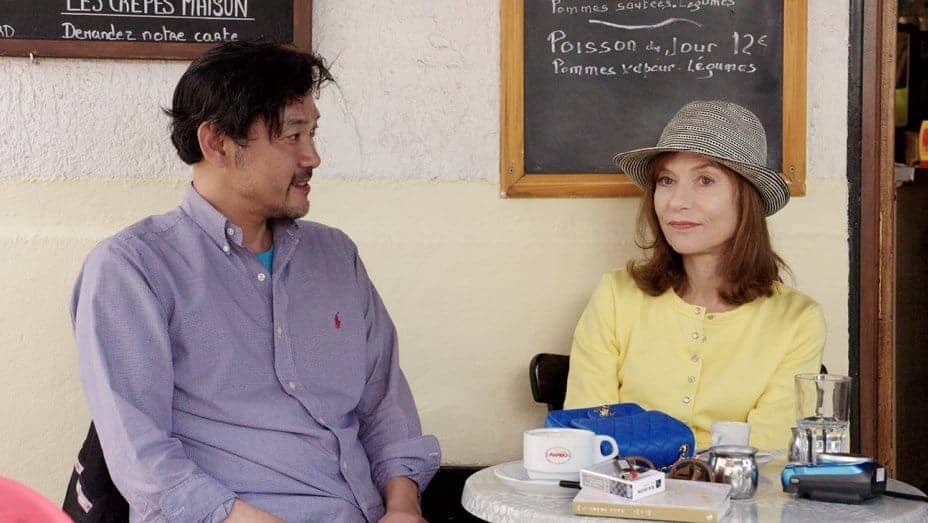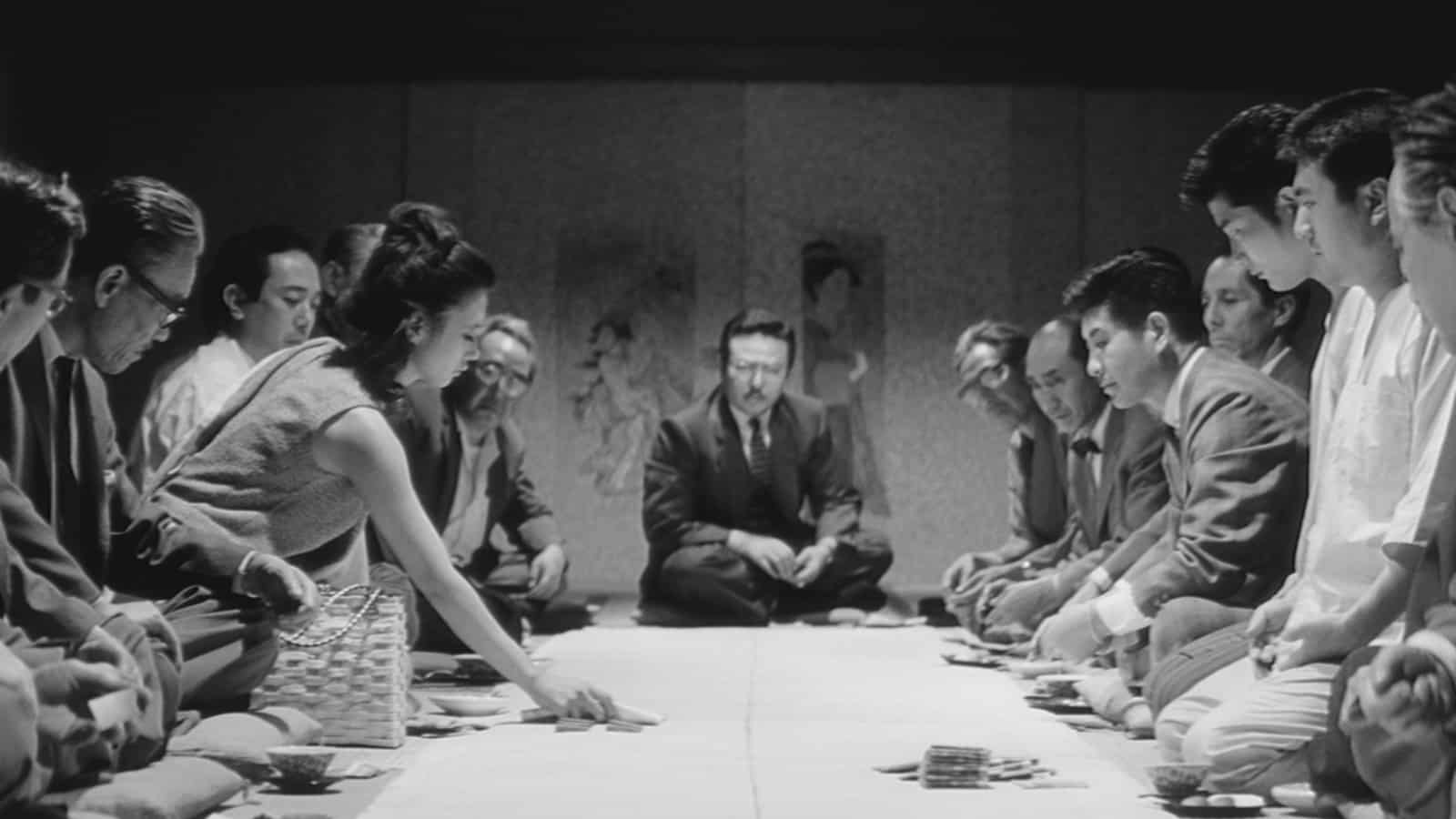Decades before “Indecent Proposal”, Kan Mukai used the same concept to present a pinku film that also functions as an accusation towards capitalism, without neglecting, though, the titillating part, which, in this case, is presented in a kaleidoscope of images, occasionally in disco style. Let us take things from the beginning though.
Buy This Title

As the story begins, we witness Kenzo, a bankrupt stockbroker being blackmailed by a rather lecherous loan shark named Uchiyama, who eventually suggests to him to let his wife have sex with him, in exchange for extending his payback deadline. The man eventually agrees, since his wife also reluctantly concurs, but Uchiyama does not stop there. After having his way with Kenzo's wife, he suggests to her to have sex with his virgin son, in order to extend the deadline even more (note here that he never offers to erase the debt). The woman decides to sacrifice herself, and meets the son, who is proven to be a mentally handicapped man-child, who is completely perverted and even wants to place living animals inside her genitalia (again, decades before Fruit Chan presented the same concept in “Three Husbands”). The terrified woman manages to escape, but during her return, a passing car mows her down. When her husband learns the news, he falls ill from the shock, in essence leaving his daughter, Mariko, who works as a go-go dancer, to take care of the debt. The girl, having no alternative, and despite her initial denial, eventually becomes a high-class call girl, both to pay the debt and to take revenge on the people who led to her father's demise, in essence a number of head figures of the business world.
As was frequently the case with pinku films, Kan Mukai has included an underlying social message, about the blights of capitalism, and the way the “Capital” exploits those of the lower “caste”. All three members of the family personify this comment, with their tragic fate highlighting the fact that even through extreme struggle, the “little man” cannot rise above his station. The scene where Mariko works for a high-end prostitute who mocks her for her poverty, her virtue, and her reluctance to become a prostitute also moves towards the same direction. At the same time, a message regarding the way money can corrupt people is also present.
This approach induces the movie with an intense melodramatic sense, particularly since the events that take place are almost illogically tragic, with the forced sentimentalism finding its apogee in the finale.
This however, does not mean that the focus on the film is on context. On the contrary, Mukai presents a production that thrives particularly due to its delirious visuals, as exhibited in the many kaleidoscopic to the point of dizzying scenes that portray the daughter both dancing along other women (occasionally nude), and having sex. Particularly the scenes in the nightclub can only be described as psychedelic, both due to the intense movements of Masayuki Hamano's camera, and the spiral tapestry in the background of the club. This psychedelic approach finds another apogee in the introductory scene, but most of all in the sequence where Mariko is dancing naked for the first time, which shows segments of a sex movie screening on the bodies of the girls, under the very fitting sounds of King Khan's “Sexploration”. This visual approach is what makes the film stand out from the plethora of similar productions; at the same time though, Kan Mukai uses this extravaganza of colors and images in order to “hide” the fact that the film is not particularly explicit, with the sex scenes being brief, at least individually, and not especially obscene.
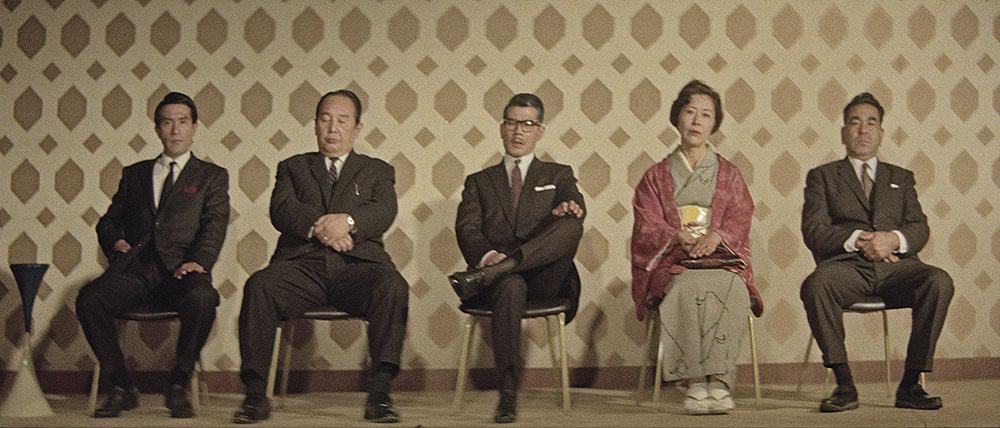
Takako Uchida as Mariko gives a very convincing performance through her transformation from an innocent and virtuous girl to a victim, a femme fatale, and a victim again. The scene where she peaks at her mother while she is having sex with the loan shark, the lengthy sequence where she has sex with many different men, and the one where she confronts her lovers are the highlights of her performance.
“Blue Film Woman” may not be particularly titillating, but the combination of visuals and music definitely compensate, in a rather impressive (for the genre) production.




